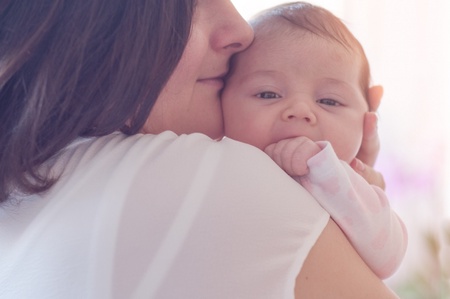In one of the largest studies of its kind, researchers from the University of Aberdeen are investigating how a parenting programme can help mothers who are feeling stressed.
The team are looking for new mothers who are feeling stressed to take part in the study which will focus on providing mental health support to new mums, and how this affects baby’s development.
Led by Professor Philip Wilson, the team of researchers, based at the University of Aberdeen’s Centre for Rural Health in Inverness has been awarded a grant of over £1.2 million from the National Institute for Health Research to study the effects of support for stressed mothers.
The project will investigate whether a commonly used parenting programme called ‘Mellow Babies’ can improve the mental wellbeing of stressed mothers, the relationship they have with their child, and the child’s social and emotional development.
The team are looking for mothers with a child younger than 18 months who are experiencing low mood or high stress and live in the Highland Council area.
During the trial, mothers will have the opportunity to connect with other mothers who may be experiencing the same anxiety and stress as themselves. They will be offered group-based sessions that will focus on their own mental health and resilience while the babies get a chance to play.
Professor Philip Wilson, Chair of Primary Care and Rural Health at the University of Aberdeen and an Inverness GP said: “This is a ground-breaking trial which will help us to understand how we can best help stressed mothers and improve outcomes for their babies. There is very little good research in this area and there is a great deal of international interest in the study.”
Hugo van Woerden, Director of Public Health, NHS Highland, said, “It is fantastic to see this key trial taking place in rural Highland. We badly need high quality trials to help us know how best to support families and their young children. This research will help us answer key questions and is very welcome.”
ENDS


